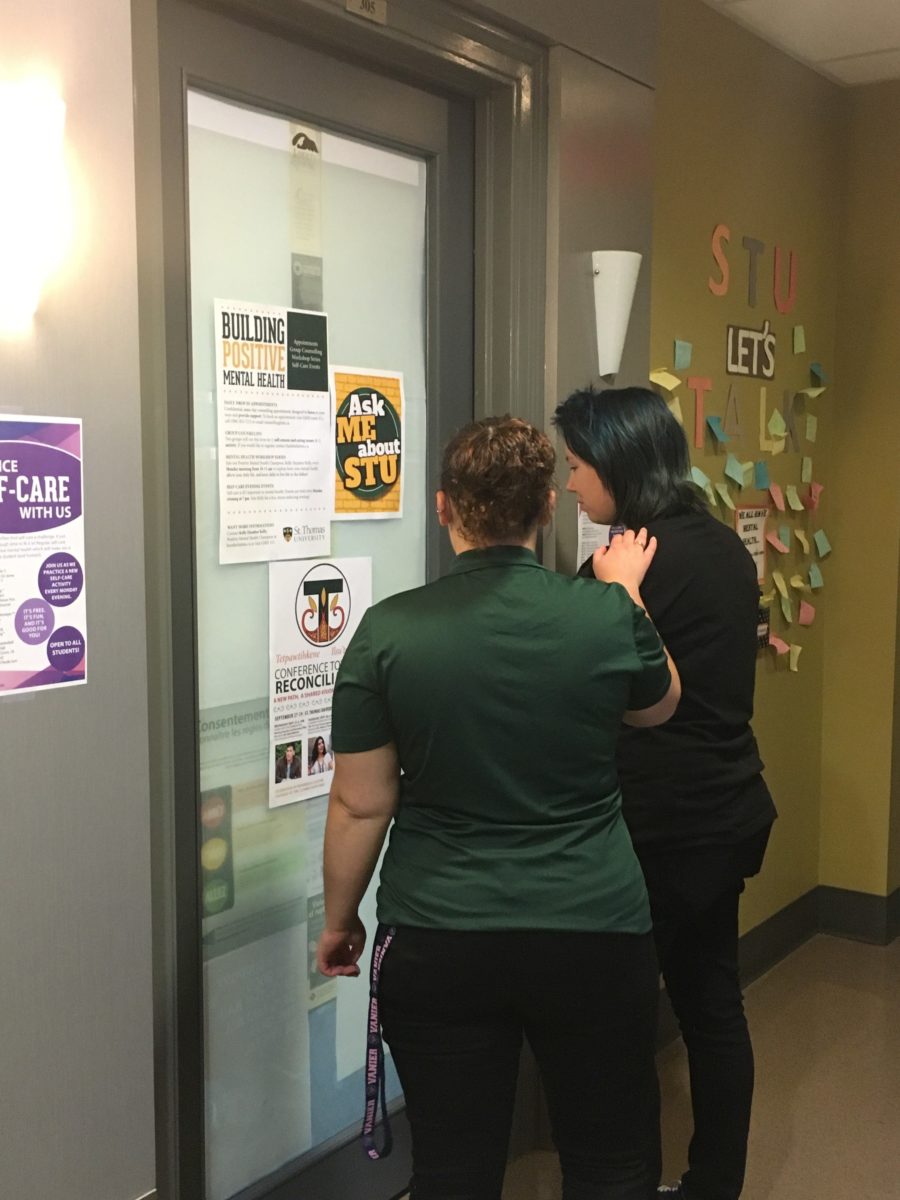Did you know that one in four people suffer from mental health disorders? Do I have your attention now?
Mental health should and needs to be talked about. There is no reason for someone to suffer in silence. Just because it’s not always visible doesn’t mean there isn’t an internal struggle a person is dealing with. It’s alright to get help and talk to someone. Believe me, I know.
I suffer from panic disorder, social anxiety, depression and mild agoraphobia, just to name a few mental health issues I deal with on a daily basis. Some days I’m fine and feel on top of the world. Other days, I feel broken and it’s a struggle to get out of bed. I don’t do well with large crowds or talking in front of people. I carry a sense of worry or fear the majority of the time, and some days just being outside is an issue. It even got to a point where it was affecting my daily life and employment.
Deciding to move to Fredericton for school has been a struggle because I left behind a support system of therapists, psychologists and counselors helping me find the right balance through medications and therapy sessions. I still have my good and bad days. But now I am building a new support system here at St. Thomas University.

Luckily, the university offers a variety of free programs and resources for those with mental health disorders, dealing with stress or who would like to speak to someone.
Rick Sharpe is the coordinator of the student accessibility centre and he has noticed an increase in the use of the centre.
“In the last couple years, we have seen a dramatic rise in mental health diagnosis. [It] may not be that mental health is on the rise, but the diagnosis is getting smarter and students are coming forward and actually feeling comfortable getting diagnosed and being registered with us,” he said.
Accessibility services works with students that have a mental health diagnosis to build an individual accommodation plan based on documentation and an interview when they register with the intention of creating a safe place for people with mental illness to learn.
STU’s mental health services offer a wide selection of options for students as well including one-on-one interpersonal counselling, drop-in sessions to help students with urgent issues and group counselling.

Kelly Humber Kelly is the mental health coordinator for student services and residence life.
“From my perspective, there certainly seems to be a high demand for our counselling services. Our two counsellors are very busy, and try our best to keep the waitlists as short as possible. [We want] to provide students with the care they need as efficiently and thoughtfully as we can,” she said.
This year STU is also going to have a peer support centre and group sessions on specific topics that students face including anxiety, depression, grief and body image. The centre is set to open in early November.
“The centre is a place for students to relate to one another and provide a listening ear and support. The peer support centre will have regular evening hours, will be open to all students, and no appointment will be necessary,” Humber Kelly said.
There are a lot of great, free services that STU offers to help with mental health. You do not have to go through it alone, so don’t feel ashamed to reach out because there will always be someone willing to help you.

